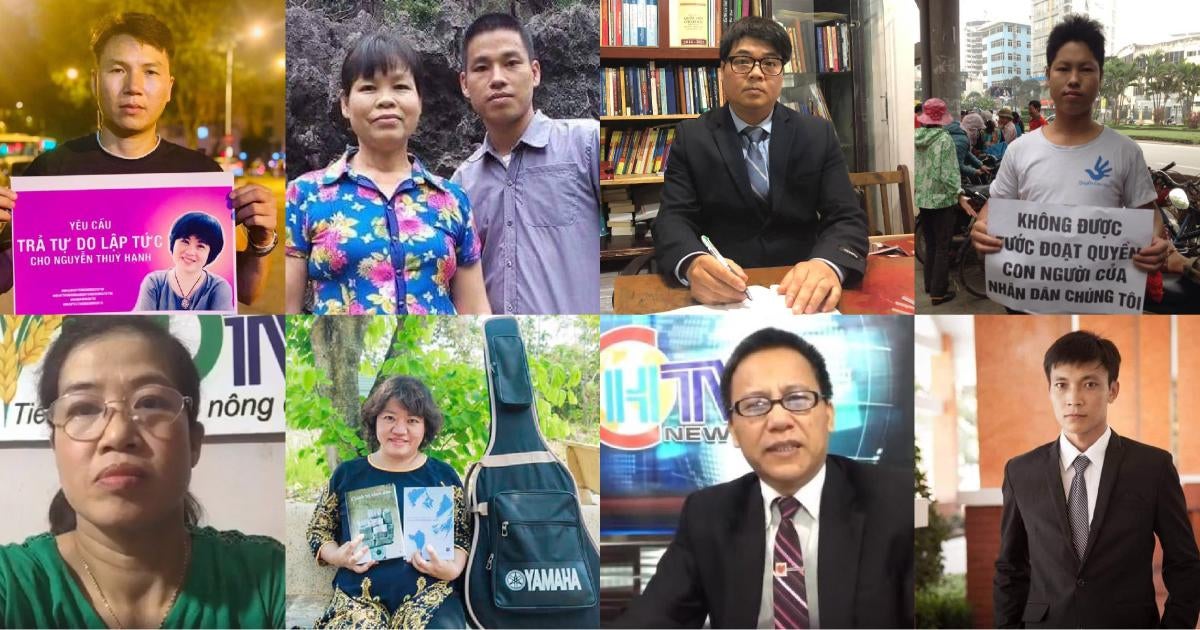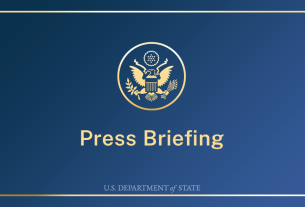(Jakarta) – The Vietnamese government intensified its crackdown on both domestic and international nongovernmental organizations in Vietnam during 2022, Human Rights Watch said today in its World Report 2023. The systematic suppression of freedom of expression, association, peaceful assembly, movement, and religion persisted without letup.
In 2022, the Vietnamese government stepped up its repression of activists. Courts convicted a journalist, Mai Phan Loi; an environmental lawyer, Dang Dinh Bach; an environmental media activist, Bach Hung Duong; and an environmental defender, Nguy Thi Khanh, all on politically motivated charges of tax evasion, and imposed harsh prison terms. Nguy Thi Khanh is a 2018 winner of the internationally prestigious Goldman Environmental Prize honoring grassroots environmental activists.
“The Vietnamese government’s blanket repression of rights activists and dissidents extended to include mainstream environmental leaders and international groups in 2022,” said Phil Robertson, deputy Asia director at Human Rights Watch. “Vietnam’s international donors and trade partners should speak out against the government’s abusive practices.”
In the 712-page World Report 2023, its 33rd edition, Human Rights Watch reviews human rights practices in close to 100 countries. In her introductory essay, acting Executive Director Tirana Hassan says that in a world in which power has shifted, it is no longer possible to rely on a small group of mostly Global North governments to defend human rights. The world’s mobilization around Russia’s war in Ukraine reminds us of the extraordinary potential when governments realize their human rights obligations on a global scale. The responsibility is on individual countries, big and small, to apply a human rights framework to their policies, and then work together to protect and promote human rights.
A decree issued on August 31 broadly restricts international nongovernmental organizations operating in Vietnam from acting against the “national interests, laws, national defense, security, social order and safety” and “social ethics, national fine customs and practices, national traditions, identity or great national unity” of Vietnam. No definitions of these terms are provided in the decree, but groups deemed to violate these provisions will be shut down.
The Vietnamese government currently incarcerates more than 160 people for peacefully exercising their basic civil and political rights. In 2022 alone, the courts convicted at least 35 people for criticizing the government and campaigning for human rights, environment, or democracy causes, and sentenced them to long prison sentences. These included a citizen journalist, Le Van Dung; a democracy activist, Dinh Van Hai; and a blogger, Bui Van Thuan. In August, courts in Hanoi rejected the appeals of a prominent blogger, Pham Doan Trang, and two land rights activists, Trinh Ba Phuong and Nguyen Thi Tam. The police are holding at least 167 other people in pretrial detention on politically motivated charges, including human rights defenders Tran Van Bang, Truong Van Dung, Nguyen Thuy Hanh, Nguyen Lan Thang, and Bui Tuan Lam.
In February, Human Rights Watch published the report “Locked Inside Our Home: Movement Restrictions on Rights Activists in Vietnam,” which detailed Vietnam’s systemic and pervasive use of restrictions on freedom of movement against political activists and dissidents between 2004 and 2021.
In March, security agents prevented eight democracy activists from attending an event in Hanoi in support of Ukraine. In August, police prohibited a human rights lawyer, Vo An Don, and his family from leaving Vietnam for the United States, citing national security as the reason. Other people prohibited from leaving Vietnam in 2022 include Father Truong Hoang Vu, Y Si Eban, Y Khiu Nie, and Nguyen Xuan Mai.



